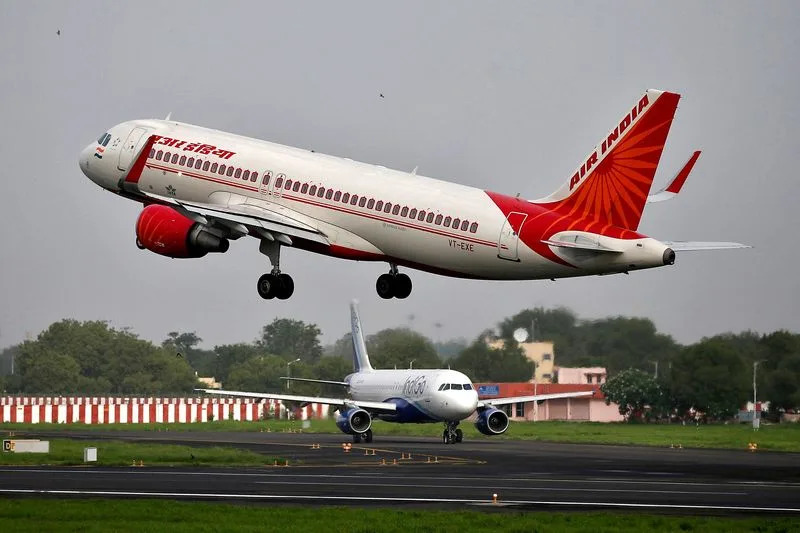Aditi Shah and Riddhima Talwani
Fri, August 25, 2023

An Air India Airbus A320 aircraft takes off as an IndiGo Airlines aircraft waits for clearance at the Sardar Vallabhbhai Patel International Airport in Ahmedabad
By Aditi Shah and Riddhima Talwani
NEW DELHI (Reuters) - India's air safety watchdog has launched a review of pilot fatigue data to see if any policy changes are needed after the sudden death of an IndiGo pilot, a senior aviation ministry official told Reuters.
The rare review, which has not previously been reported, comes after an IndiGo pilot collapsed and died before his flight last week. That has sparked complaints from some Indian pilots that they are being stretched to the brink by airlines, even though they comply with duty time regulations.
After the death, hundreds of airline pilots plan to form an association to challenge flying duty regulations they say cause fatigue and jeopardise safety, Reuters reported this week.
The Directorate General of Civil Aviation (DGCA) has now decided to conduct a review of pilot fatigue data it has collected during spot checks and surveillance of airlines to see if regulations related to flight duty times or fatigue need to be changed, said the official.
The regulator could go a step further by approaching Indian airlines to submit details of pilot complaints related to fatigue.
"The regulator will go to a granular level," said the official, declining to be named in line with government rules.
While pilot fatigue is a global problem, India is at the heart of the matter as the world's fastest-growing aviation market, with hundreds of new planes on order by IndiGo and Tata group-owned Air India.
IndiGo, India's biggest airline, has said the pilot who died had a 27-hour break before duty and was in good health.
In the United States, regulators allow pilots on two-pilot flights to be on duty for a maximum of 14 hours during the day and nine hours for late-night flights. India does not differentiate between day and night flights and allows pilots to be on duty for 13 hours within a 24-hour span.
"Whatever systemic intervention is needed, the regulator will make robust changes. It is an outcome oriented exercise and the watchdog is open to take all steps," the official said, adding India intended to be in line with other major regulators.
Indian pilots must, however, report fatigue without fear of backlash from airlines, he added.
"The airlines need to show more maturity. Rostering needs to have an element of cautious monitoring of fatigue," said the person, adding that reporting it is a "shared responsibility".
About a dozen Indian pilots with whom Reuters spoke in recent weeks shared worries not just about work hours but flight schedules they say are erratic and worsened sometimes by consecutive late-night departures without sufficient rest.

No comments:
Post a Comment